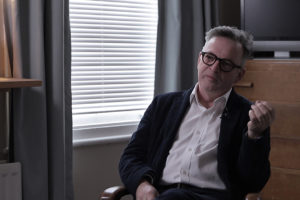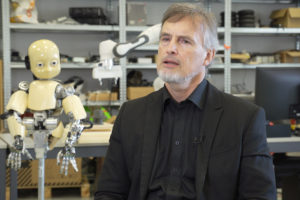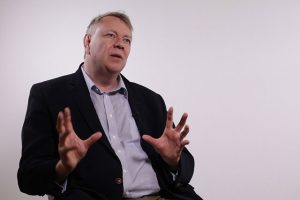Amyotrophic Lateral Sclerosis
Neurologist Kevin Talbot on the history of neurological research, genetics of ALS and the modern view on the o...
What are self-contradictory statements? Is there a computer that has the capacity for self-reference? Professor of Mechanical Engineering at MIT Seth Lloyd explains why no decider is able to know what decision they will make.
For thousands of years human beings have argued about what free will is. Do we even have it? Actually, there is a strong argument that we don’t, because for many generations people thought the laws of physics were completely deterministic. If everything’s determined beforehand, how can we have free will? If I decide this afternoon, “It’s 4 o’clock, should I have a cup of coffee, or should I have a cup of decaffeinated coffee? Well, a cup of coffee would be more exciting. But a cup of decaffeinated coffee might be a safer bet later on the evening…” Am I actually making that decision, or has it been determined beforehand?
There is another perspective about free will, which says that even if things are determined, or even mechanistic, then we could still have free will. This argument is at the center of a current debate that goes on in neuroscience. Neuroscientists, scientists of the brain, are now getting to the point where they can look at the signals coming out of the electrodes that are patched to the neurons in your brain, and they claim that they can figure out what decision you are going to make a split second before you do it. So, you know, that split second before I say, “I’m going to go with decaffeinated coffee.”
Why do we think that our will is free? Because prior to actually making the decision it seems to us, the decision maker, or the Decider, in the words of George W. Bush, former president, the decider does not know what the decision is. There’s have been wonderful things written about free will over the years. Samuel Johnson, the English Dictionary maker, summarized the debate between Locke and Hume in the 18th century about free will, saying, “All theory militates against the freedom of will, but all experience speaks for it.” And then at another point he said, “Our will is free, and that’s the end to it.” But you can’t necessarily actually get a free will just by saying that we have free will.

Neurologist Kevin Talbot on the history of neurological research, genetics of ALS and the modern view on the o...

AI specialist Jürgen Schmidhuber on credit assignment, recurrent neural networks and how can you solve the par...

Mathematician Jørgen Andersen on local geometry of hydrogen bonds, quantum states of proteins and future metho...